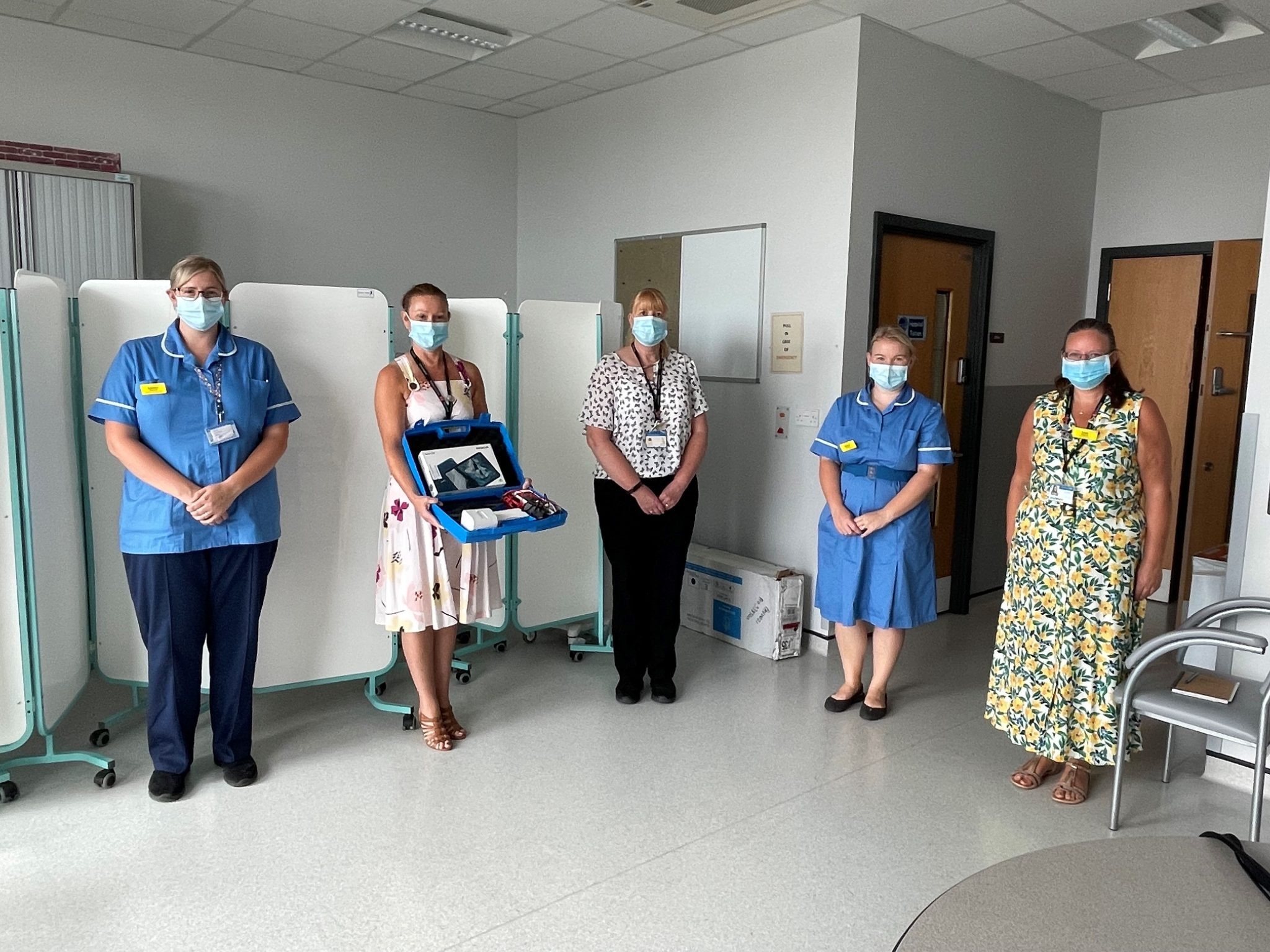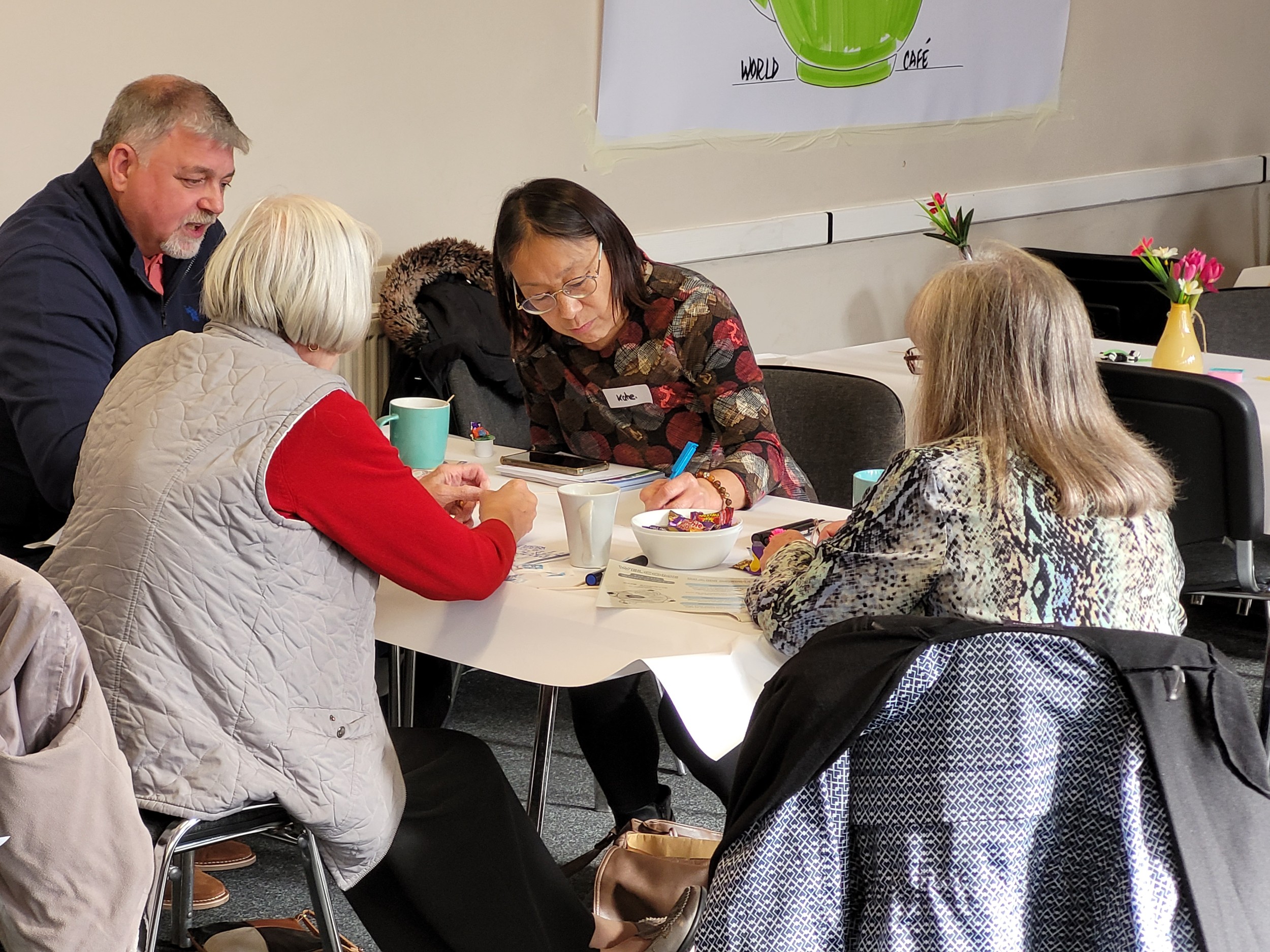Health and care partners across the Black Country are continually working on new and innovative ways to improve patient care and support capacity across the whole system. In this section you can find details of some of our top success stories.
An integrated care pathway has been introduced to provide safe, compassionate care for older people living with frailty in care homes across the Black Country.
The Frailty, Recognition, End of Life, Escalation of Deterioration (FREED) pathway aims to improve early recognition of frailty, end-of-life planning, and responds to the health decline of individuals in care homes. Deterioration tools such as stop & watch and the NEWS2 scoring system assess residents clinical and soft signs of deterioration, ensuring responsive, timely escalation to the most appropriate service and timely access medical care.
The purpose of the pathway is to ensure the best evidence assessments and care planning prevents inappropriate admissions to hospital and ensure residents are on the right pathway, at the right time, and are cared for in the right place based on their wishes and condition, promoting choice, control at end of life.
Following a 12-month project, which was funded by Health Education England (HEE) in 2020, the FREED pathway and associated training was delivered to care homes across the Black Country, building the capabilities, confidence and competencies of staff, carers and their family members, whilst simultaneously improving quality, safety, building resilience and sustainability into the system. A training programme was developed to support care home staff to undertake observations, recognise signs of deterioration, and take appropriate action.
Over the course of the 12-month project, 146 care homes received the FREED/Deterioration training, benefitting a total of 1,771 care staff members. Feedback from the training showed a significant positive impact on staff confidence:
- Confidence in using the Stop and Watch Tool increase by 51%
- Confidence in taking oxygen saturations increased by 31%
- Confidence in taking blood pressure increased by 31%
The project ended in May 2021 and during the 12 months the pathway was not actively implemented, data demonstrated that there was an increase in both calls and conveyances, with 2,300 more 999 calls from care homes and 656 more conveyances to hospitals from care homes.
Due to the success of the initial FREED pathway implementation, funding was obtained to re-launch FREED (12-month funding) to all care homes in the Black Country and retain all care home staff. Since September 2022, training has been delivered to more than 90 care homes and 1623 staff members, which has also included training of FREED champions within these homes building resilience and sustainability through keeping all their staff up to date on the FREED pathway, the tools and training.
Alongside the FREED pathway an electronic resource pack has also been developed which included tools, versions of assessments and support documents for care homes to use. Each home has been sent the electronic version to either have printable access to these resources or to be uploaded to the electronic devices.
Sarah Sherwood, Quality Improvement and Care Academy Lead Nurse for NHS Black Country Integrated Care Board, said: “As an ageing society, compassionate care is fundamental if people are to feel safe and supported. That means good communication, coordination of care, and skilled and evidence-based interventions.
“The FREED pathway has been a huge success in the Black Country to date and is proven to reduce avoidable admissions to hospital so people can be cared for in their own home. For those that have been deemed end of life, promoting choice, control, ensuring their voice is heard and wishes respected.
“That’s why it’s really important for care homes to be given the tools to recognise early deterioration in their patients so they can be assessed, diagnosed and given the appropriate treatment based on their individual requirements.”
Diabetes champions
A team of health champions are leading the fight against diabetes in Walsall, after supporting hundreds of local residents.
The six-strong team were recruited by Midlands’ landlord whg in July 2022 to work with people diagnosed with, or at risk of developing, diabetes. In just six months, they conducted 312 outreach visits to chat with those at risk of diabetes, engaged with 184 customers about the support available and provided intensive health coaching support to 45 of those.
The project, which has been funded by NHS Black Country Integrated Care Board (ICB) and delivered in partnership with the NHS community diabetes service, aims to support 400 people over the next two years.
The community health champions, who all have lived experience of diabetes, are working in areas of Walsall where levels of diabetes are high and general health and wellbeing is poor. They use their life experience of living with, or caring for someone with diabetes, to connect with people in the local area, encourage access to support services, including diabetes education sessions and support people to positively manage their condition.
Fay Shanahan, Corporate Director of Operations, said: “It’s great to see our community health champions go from strength to strength as we celebrate their first six months in post.
“This project is really unique in its offer and has only been possible thanks to our collaborative approach with our health partners. With the majority of those supported from an ethnic minority background our community champions, who speak 15 community languages between them, are allowing us to engage with customers who have language barriers to understand their health needs.”
Taps Mtemachani, Director of Transformation and Partnership for NHS Black Country ICB, said: “This is a real example of how we build stronger and resilient communities that are empowered to champion health and wellbeing.
“Whilst we recognise there is a lot more to do to better serve our communities, particularly those that have been historically underserved, we are really pleased to see this community-centred project flourish in this way and providing meaningful support for people like Elizabeth.
“We are confident that through this project and working with our housing partners, we will be able to better support many more people across our communities.”
Success stories include customer Elizabeth, who got her diabetes back under control after working with one of the champions. She said: “My health champion has been golden. She gave me advice and helped me and after just a few months I’ve got my diabetes back down again to borderline, which I am very pleased and thankful for.
“With the help from her I feel 15 years younger!”
Social prescribing
Recognising that many illnesses are not necessarily fixed by medication or visit to the GP and that sometimes people just need the contact of others, whg launched its social prescribing service in 2020 during the COVID-19 pandemic.
The ‘H Factor’ programme (which stands for Health, Hope and Happiness) provides customers with the support of a social prescriber who works alongside them to improve their health and wellbeing, rather than a prescribe medication. This includes helping customers to develop new friendships in their local community, kickstart old hobbies that haven’t been enjoyed in a while and increasing access to new activities and experiences.
To date customers have benefited from befriending services, activities such as arts and crafts, music, film and book clubs, counselling and support groups, volunteering opportunities and emotional support provided through regular wellbeing conversations.
The programme provides a “more than medicine” approach to health and wellbeing by offering a safety net of social support that can help people to feel happier, hopeful and healthy.
Connie Jennings, head of health and wellbeing, said: “We are proud to be more than a landlord and are always looking for new ways to improve outcomes for our customers and make a real difference in our local communities.
“Now, more than ever, many people are finding life a challenge with an increase in people feeling anxious and low and struggling to feel focussed and positive. This can have a huge impact on health and wellbeing – and that’s where our new social prescribing service comes in.
“Social prescribing can be useful to many people – those that may feel isolated or lonely, have long term health issues or have complex social needs affecting their welfare. This service will find ways to support customers’ needs in ways that works for them, with the aim of improving health outcomes, reducing health inequalities, and reduce demand on the health and social care system.”
More than 1,600 care homes beds across the Black Country are now using remote monitoring technology to help support and manage the health and wellbeing of their residents.
Funded by NHS England, the remote monitoring system from Docobo aims to help to reduce the need for emergency hospital admissions and GP appointments, as well as save clinical staff from hours of admin.
Care home staff use tablet devices linked to health tools, such as blood pressure monitors, pulse oximeters and thermometers to regularly record the vital signs of residents.
Readings are then securely transferred to a team of clinicians who are on hand to give timely advice, monitor for gradual deterioration and ensure that any issues are picked up quickly, reducing the need for hospital intervention.
In the Black Country, more than 30 care homes have implemented Docobo’s DOC@HOME remote monitoring system to date, with many more scheduled as the rollout continues. This has led to a 18.5% reduction in hospital admissions, a 9.5% reduction in hospital readmissions and a 12.3% reduction in ambulance conveyances, as well as a 5.1% reduction in 111 calls.
The NHS has created a short video on how this remote monitoring technology is having a positive impact at a care home in Wolverhampton, which you can watch below:
From January 2023, robot arm-assisted surgery for hip and knee replacement patients is now being offered at Walsall Manor Hospital – the first district general hospital in the country to do so.
The innovation within the Trauma & Orthopaedic (T&O) Department gives Walsall Healthcare NHS Trust the opportunity to blaze a trail for elective arthroplasty (surgery to restore joint function), within the Integrated Care System.
Consultants say the £1.8m technological investment will transform outcomes and experience for patients and are excited to see what the future holds.
Mr Thomas Moores, Clinical Director for T&O, said: “This is a fantastic opportunity for our patients and equally as exciting for our surgeons to be involved in such cutting-edge advancements.
“The precision that Mako SmartRobotics allows in joint replacement surgery will transform the way total knee replacements are performed. For our patients there will be shorter lengths of stay in hospital, reduced bone and soft tissue injury and improved outcomes such as greater flexibility and movement.
“This technology means surgeons know more about their patients than before and are therefore able to cut less. For some patients, this can mean less soft tissue damage, for others, greater bone preservation.
“Mako’s 3D CT allows us to create a personalised plan based on each patient’s unique anatomy all before entering the operating room. During surgery, we can validate that plan and make any necessary adjustments while guiding the robotic arm to execute that plan.”
Mr Fahad Hossain, Consultant and Director of Research and Development, said he was fortunate enough to be able to use this technology as a trainee back in 2015/16 when he worked in London.
“It’s exciting to be able to offer this transformative technology across the joint replacement service to perform total knee, total hip and partial knee replacements,” he said.
“We are proud to be the first district general hospital to offer this advanced robotic technology which further demonstrates our commitment to provide our communities with improved healthcare.”
Mr Hossain said the department was also delighted to have secured acceptance from the NHS Health Research Authority for the prestigious Robotic Arthroplasty: a Clinical and cost Effectiveness Randomised controlled trial (RACER trial).
“This innovation has really paved the way for greater research opportunities for our Trust which is another boost for our patients.”

at Walsall Manor Hospital
In 2022, virtual wards were introduced across all four places in the Black Country, helping to support patient flow out of hospital and improve patient experience.
A virtual ward combines state-of-the-art app technology and medical devices such as pulse oximeters, with on-demand access to specialist nurses and doctors, enabling patients to be looked after in the comfort and familiarity of their own home.
Patients who are suitable for a virtual ward are identified during hospital ward rounds, and if the patient is willing, they are enrolled in the programme. Patients and/or their carers receive training so they can understand how the virtual ward equipment works, and they are then sent home with a kit consisting of state-of-the-art monitoring equipment. From their arrival home, the patient is then monitored virtually, but all alerts, interventions and outcomes are recorded and acted upon, with direct access to professionals within the hospital via phone for any concerns.
The Black Country was also the first in England to introduce virtual wards for children. Following a successful pilot in Dudley in March 2022, the model has since been rolled out to Walsall, Wolverhampton, and Sandwell.
To date, more than 3,500 patients have been supported via the virtual wards, with the ability to run up to 290 "beds" across the Black Country.
In January 2022, primary care "hubs" were set up across the Black Country to provide extra support for patients with respiratory illnesses (those affecting the lungs and airways).
Located in Sandwell, Dudley and Walsall, the hubs support local GP practices by providing same-day, face-to-face appointments.
The GP-led hubs were initially set up for children with suspected respiratory syncytial virus (RSV), a common winter virus that causes cold-like symptoms and coughs, and can lead to hospital admissions in babies, young children, and vulnerable adults.
However, they have been so successful that in some cases they have expanded to offer appointments to whole families.
The hubs are by appointment only and GP practices can book children into the hub if all their own face-to-face appointments are filled that day. Providing appointments in the community also supports urgent care as parents are less likely to take their child to a walk-in centre or A&E if they’re unable to get in at their normal GP practice.
Each hub sees approximately 800 patients per month and less than 1% of children seen at the hubs need an onward referral into urgent care.
In December (2022), all hubs increased their capacity to see 40% more children due to the rise of Strep A and RSV cases in the community.
Two community diagnostic centres have been opened in the Black Country to help speed up diagnostic tests for patients.
Community Diagnostic Centres (CDCs) are key to transforming current care delivery by providing access to “right first time” diagnostics and treatment services closer to patients’ homes. They have played an important role in supporting the Black Country to become one of the first systems in the country to eliminate 104-week referral to treatment waiting times.
The centres, one at the Corbett Outpatient Centre in Dudley and one at Cannock Chase Hospital in Cannock, aim to improve patient outcomes in areas such as cancer, stroke and heart disease, as well as provide quicker access to testing and results for patients in their community.
As well as helping to cut waiting times for patients receiving scans and other tests, CDCs also offer:
- A one-stop diagnostic location to allow patients to have all tests in one place (where appropriate)
- Separate emergency diagnostics from planned/elective diagnostics
- A location away from an acute hospital site
- A focus on locations with greatest population need
- Easy access for patients
- Connection with primary, secondary and community care
- Support for increasing workforce numbers by offering training capacity.
There are plans to deliver at least two more CDCs in the Black Country in the future.


